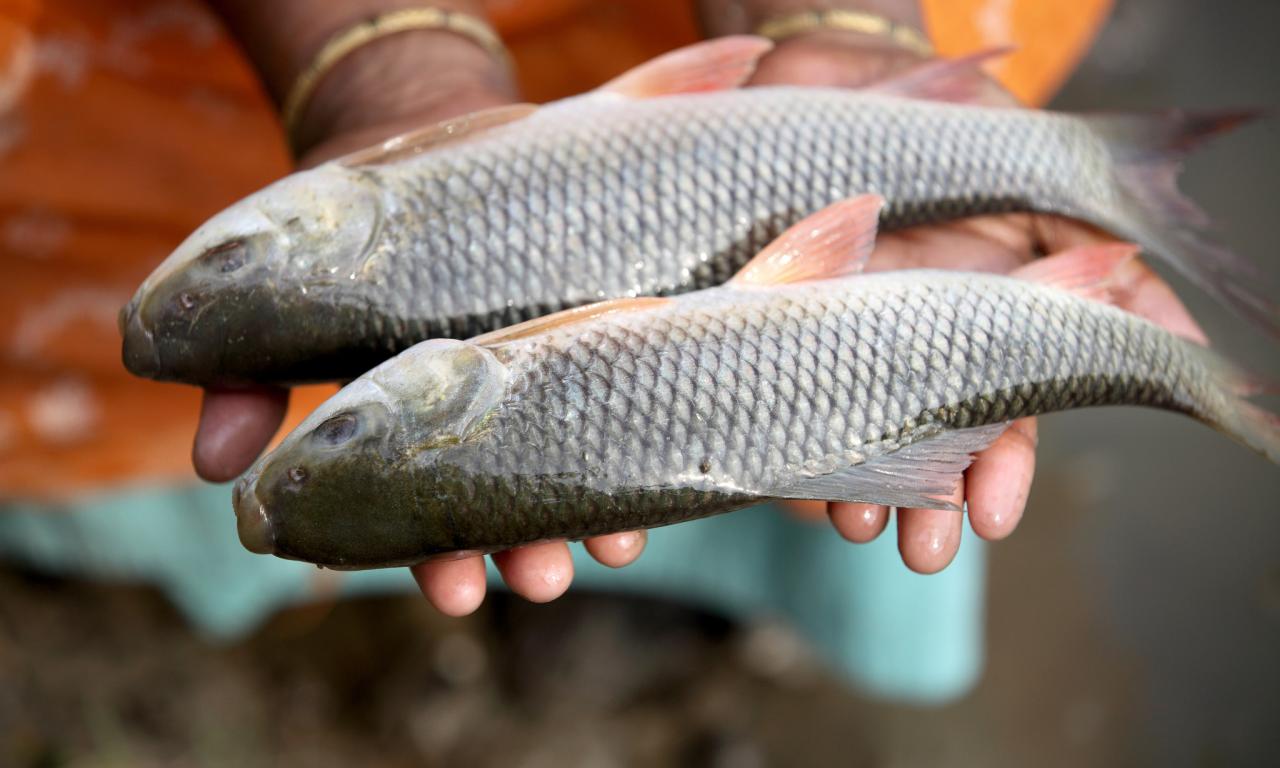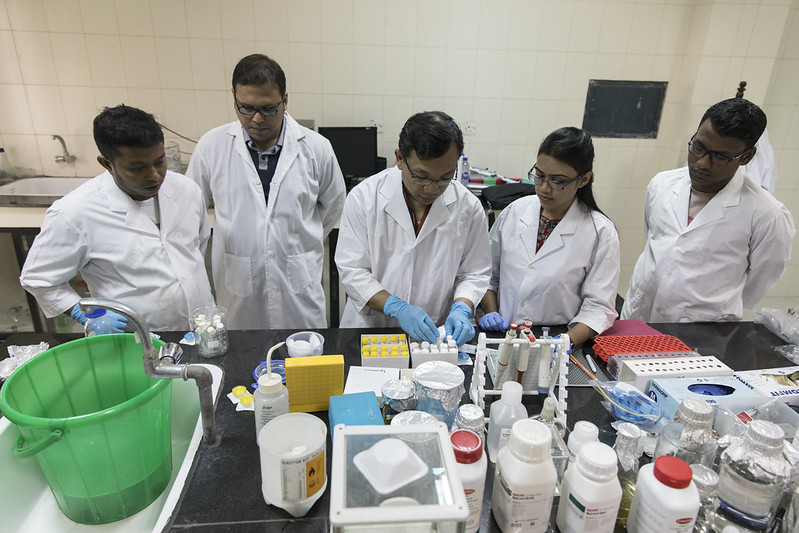
The CGIAR Antimicrobial Resistance Hub, which includes the WorldFish-led research program FISH, is being launched on 21–22 February 2019 in Nairobi, Kenya.
Recommended publications
- Why antimicrobial resistance in aquaculture systems matters for the One Health approach
- AMFORA: Applying a One Health systems modelling approach to formulate strategies for mitigating the risk to human health of ABR in aquaculture
- The role of infectious disease impact in informing decision-making for animal health management in aquaculture systems in Bangladesh
To help tackle the growing problem of antimicrobial resistance in developing countries, WorldFish has been invited to contribute to the new CGIAR Antimicrobial Resistance Hub. The hub, which will integrate and channel the research and development efforts of three CGIAR centers and three CGIAR research programs including FISH, is being launched on 21–22 February 2019 in Nairobi, Kenya.
Antimicrobials are among the most important tools available to treat disease and improve welfare in animals and humans. Yet rising resistance to these drugs in disease-causing bacteria and other microbes poses a major threat to public and animal health as well as the structure and sustainability of food production.
Antimicrobial resistance is a particular concern in low- to -middle-income countries. With their growing populations, these countries face the greatest demand for increased food production but also tend to have poorer knowledge of and regulations regarding antimicrobial use.
Data gap in antimicrobial resistance in aquaculture
Aquaculture is the fastest growing food production sector worldwide. Moreover, the potential to increase aquaculture production is also seen as immense, with positive implications for the eradication of global malnutrition. However, intensive aquaculture systems in low- to middle-income countries can experience high disease burdens, with the risk of increased antimicrobial use (and misuse).
But the real impact of antimicrobial use in aquaculture remains unclear. This is partly because antimicrobial use in aquaculture differs from livestock farming due to, for example, aquaculture’s greater diversity of species. There is also less research on antimicrobial use and antimicrobial resistance in aquaculture. Given the importance of fish in many food systems, this is a significant data gap that WorldFish and its partners are working to fill.
Indeed, aquaculture may be a key site for the emergence, persistence and transmission of antimicrobial resistance. Among the main potential drivers of resistance are poor fish farming practices, insufficiently labelled medicines, the use of animal droppings as fertilizer in ponds and the transfer of water from one environment to another.
To better understand these drivers and support national aquatic animal health strategy development and implementation, WorldFish is working with farmers, regulators, prescribers, policy makers and industry stakeholders.
For example, research with our partners in Bangladesh showed that fish farmers paying back credit on a regular basis typically harvest and restock their ponds often, a practice that increases the risk of disease transmission. Paradoxically, encouraging single stocking may actually promote antimicrobial use as farmers are more likely to try and rescue stock to avoid financial losses.
Identifying risk factors for disease emergence
“A greater understanding of farmer practices and behaviors is helping us to identify risk factors for disease emergence as well as the main hotspots of antimicrobial use,” says Dr. Jérôme Delamare-Deboutteville, Postdoctoral Fellow, Sustainable Aquaculture, who is meeting with WorldFish partners at the launch. “This will help us to design better disease management interventions, reducing reliance on chemicals and antimicrobials.”
Besides WorldFish and FISH, the new Antimicrobial Resistance Hub will draw on the expertise of two other CGIAR centers—International Food Policy Research Institute and International Water Management Institute—and two other CGIAR research programs—Agriculture for Nutrition and Health, and Livestock. The hub will be led and hosted by the International Livestock Research Institute (ILRI) in Kenya.


